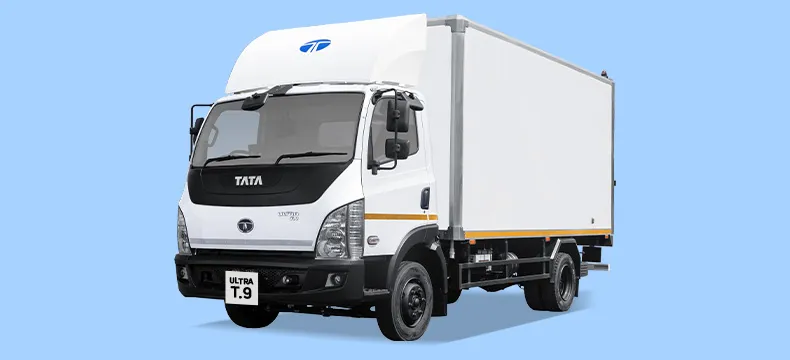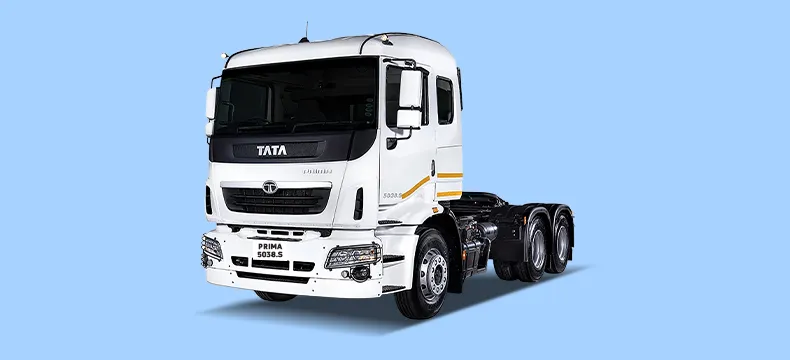4 Dec 2025

How Features and Technology from Upcoming Commercial Vehicles Launch Impact Kenya?
- Tata Motors
- 23 Sep 2024
- COMMERCIAL VEHICLE
Introduction
The commercial vehicle market in Kenya is on the cusp of significant transformation, driven by advancements in vehicle technology and the introduction of innovative features. With the upcoming launches of new trucks and other commercial vehicles, there's an eager anticipation of how these changes will shape the industry.
The impact of commercial vehicle technology is expected to be profound, influencing everything from operational efficiency to environmental sustainability. This blog explores the potential effects of these upcoming truck features and future technology on Kenya's commercial vehicle sector.
Overview of New Features and Technologies
The new commercial vehicles set to be launched boast a range of cutting-edge features designed to enhance performance, safety, and efficiency. Key upcoming truck features include advanced driver-assistance systems (ADAS), improved fuel efficiency through hybrid and electric powertrains, and enhanced connectivity for better fleet management. These technologies are expected to improve the driving experience and reduce operational costs and environmental impact. By leveraging the latest innovations, these vehicles aim to meet the evolving needs of the commercial transport sector in Kenya.
Impact of New Commercial Vehicle Features in Kenya
The impact of new commercial vehicle feature in Kenya encompasses economic, environmental, and social dimensions. Below, we delve into how these advancements will influence various aspects of the Kenyan commercial vehicle industry.
Economic Benefits
One of the most significant impacts of commercial vehicle technology is the potential for cost savings and increased business profitability. Advanced technologies like telematics and real-time data analytics enable more efficient route planning and fuel management. This can lead to substantial reductions in fuel consumption and maintenance costs, ultimately boosting the bottom line for transport companies.
Environmental Impact
The environmental benefits of technology in new commercial vehicles are equally compelling. With Kenya's commitment to reducing carbon emissions and promoting sustainable practices, adopting cleaner technologies in commercial vehicles aligns perfectly with national goals. Electric and hybrid trucks produce fewer emissions than diesel, improving air quality and reducing greenhouse gas emissions.
Furthermore, new trucks' advanced engine technologies and better aerodynamics enhance fuel efficiency, reducing each vehicle's carbon footprint. This shift towards greener commercial vehicles supports Kenya's broader environmental objectives and promotes a healthier living environment for its citizens.
Safety Improvements
Safety is a critical concern in the commercial transport sector, and the impact of commercial vehicle technology is set to address this issue comprehensively. The new generation of trucks comes equipped with state-of-the-art safety features, including ADAS, collision avoidance systems, and lane-keeping assist. These technologies significantly reduce the risk of accidents by providing drivers with real-time alerts and automatic interventions when necessary.
In addition to preventing accidents, these safety features also enhance driver comfort and reduce fatigue, a common issue in long-haul transportation. By making driving less stressful and more secure, these advancements can decrease road accidents and improve overall road safety in Kenya.
Operational Efficiency
Another critical aspect of commercial vehicle technology's impact is improving operational efficiency. The integration of advanced telematics and connectivity features allows for better fleet management. Fleet operators can monitor vehicle performance in real-time, track fuel consumption, and receive maintenance alerts, enabling proactive management of their assets.
This level of connectivity also facilitates better route planning and logistics management, reducing idle times and ensuring timely deliveries. As a result, businesses can optimize their operations, improve customer satisfaction, and gain a competitive edge in the market.
Social Impact
The social implications of technology in new commercial vehicles are also noteworthy. By adopting more efficient and environmentally friendly commercial vehicles, companies can contribute to the well-being of communities. Reduced emissions lead to better air quality, which has direct health benefits for people living in urban areas.
Introducing advanced safety features helps protect drivers and other road users, making Kenyan roads safer. This social responsibility can enhance the reputation of transport companies and foster a positive relationship with the public.
Conclusion
The upcoming launches of new commercial vehicles with advanced features and technologies are set to revolutionize the Kenyan transport sector. The impact of commercial vehicle technology will be felt across various dimensions, from economic and environmental benefits to safety and operational efficiency. As Kenya continues to embrace these innovations, the future of its commercial vehicle industry looks promising, with significant potential for growth and improvement.
Elevate your business with the Tata Ultra T.9, featuring a powerful 497 TCIC (3.3L) BS-IV engine and advanced safety features designed for unmatched efficiency and reliability in the Kenyan market.
FAQ
How will these new technologies impact Kenya's transportation sector?
Introducing advanced technologies in commercial vehicles will enhance operational efficiency, reduce fuel and maintenance costs, and improve road safety. This will increase transport companies' profitability and provide safer, more reliable transportation services.
What environmental benefits can Kenya expect from new commercial vehicle technologies?
Adopting hybrid and electric powertrains in new commercial vehicles will reduce carbon emissions and improve air quality. Advanced engine technologies and better aerodynamics will further enhance fuel efficiency, contributing to a smaller carbon footprint.
How do advanced safety features in new vehicles enhance road safety in Kenya?
Advanced safety features such as ADAS, collision avoidance systems, and lane-keeping assist reduce the risk of accidents by providing real-time alerts and automatic interventions. These technologies make driving safer and less stressful, leading to fewer road accidents.
- Tags



















